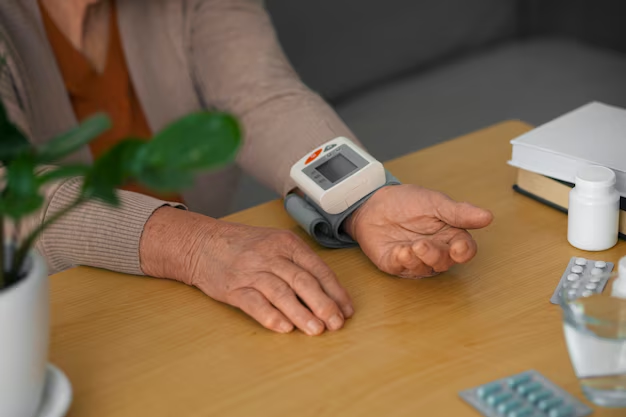Your Guide to Can Hypertension Cause Dehydration
What You Get:
Free Guide
Free, helpful information about HyperTension FAQ and related Can Hypertension Cause Dehydration topics.
Helpful Information
Get clear and easy-to-understand details about Can Hypertension Cause Dehydration topics and resources.
Personalized Offers
Answer a few optional questions to receive offers or information related to HyperTension FAQ. The survey is optional and not required to access your free guide.
Does High Blood Pressure Lead to Dehydration? What You Need to Know
When managing hypertension, understanding its broader health implications is crucial. One common question is whether high blood pressure can cause dehydration. Let's delve into the relationship between these two health concerns and explore practical solutions for those affected.
Hypertension and Its Impact on the Body
Hypertension, or high blood pressure, is a condition where the force of the blood against your artery walls is too high. Over time, this can lead to serious health problems, such as heart disease, stroke, and kidney issues. Often dubbed the "silent killer," its symptoms are not immediately apparent, making regular monitoring essential.
Can Hypertension Cause Dehydration?
Simply put, hypertension does not directly cause dehydration. However, there are indirect ways they can be connected:
Medication Side-Effects: Many people with high blood pressure take diuretics ("water pills") to manage their condition. While effective, these medications increase urination, which can lead to dehydration if fluid intake isn't adequately maintained.
Lifestyle Factors: Adopting a low-sodium diet is common advice for those with hypertension, but an overly restricted salt intake can sometimes lead to imbalances in fluid levels within the body. Remember to strike a balance that considers both your sodium and hydration needs.
Underlying Health Issues: Some conditions linked with hypertension, such as kidney problems, can also affect fluid balance, potentially leading to dehydration.
Staying Hydrated with High Blood Pressure
Hydration is crucial for everyone, particularly those dealing with high blood pressure. Here are a few practical tips:
Monitor Your Fluid Intake: Ensure you consume enough water throughout the day, especially if taking diuretics. Signs of dehydration can include headaches, dizziness, and dark urine.
Balance Your Electrolytes: Ensure your diet includes a healthy balance of electrolytes—key for maintaining fluid balance and supporting nerve and muscle function.
Regular Health Check-Ups: Maintain regular appointments with your healthcare provider to monitor your blood pressure and kidney function, ensuring your treatment plan aligns with your overall health needs.
Broader Implications and Practical Help
Living with hypertension can sometimes stretch personal resources, both emotionally and financially. Fortunately, several avenues can help ease this burden.
Government Aid Programs: Programs like Medicare and Medicaid can lessen the financial load by covering medical expenses, including medication costs.
Educational Grants: Understanding your health is empowering. Many organizations offer grants for courses that educate about health and management of chronic conditions.
Debt Relief Options: Managing medical debt can seem daunting, but options like negotiating with creditors and exploring debt settlement programs can provide relief.
Credit Card Solutions: Balance transfer cards or low-interest credit cards can ease how healthcare expenses are managed over time.
Helpful Resources to Explore:
- 💡 Medicare/Medicaid: Access to comprehensive healthcare coverage.
- 🎓 Educational Grants: Subsidized courses focused on health management.
- 💳 Credit Card Assistance: Balance transfer and low-interest options.
- 🔄 Debt Relief Programs: Negotiation with creditors and structured settlements.
Understanding the intricate dance between hypertension and hydration is essential, both for your health and wellness journey. Remember, a well-rounded grasp on your health condition and access to supportive resources can significantly improve your quality of life.
What You Get:
Free HyperTension FAQ Guide
Free, helpful information about Can Hypertension Cause Dehydration and related resources.

Helpful Information
Get clear, easy-to-understand details about Can Hypertension Cause Dehydration topics.

Optional Personalized Offers
Answer a few optional questions to see offers or information related to HyperTension FAQ. Participation is not required to get your free guide.


Discover More
- a 66 Year Old Female With a History Of Hypertension
- Are Eggs Bad For Hypertension
- Are Eggs Good For Hypertension
- Are Endocrine Disorders Causing Hypertension Rare
- Can Adderall Cause Hypertension
- Can Alcohol Cause Hypertension
- Can Allergies Cause Hypertension
- Can Anemci People Get Hypertension
- Can Anemia Cause Hypertension
- Can Antibiotics Cause Hypertension
